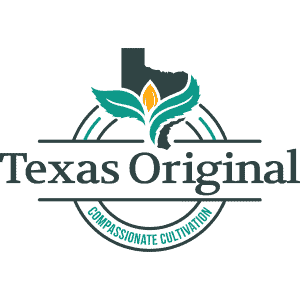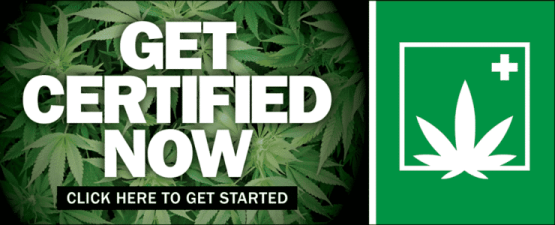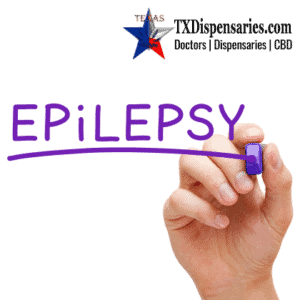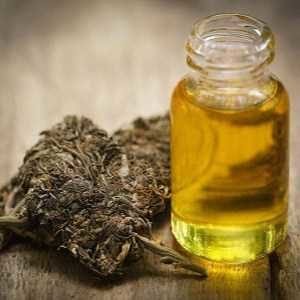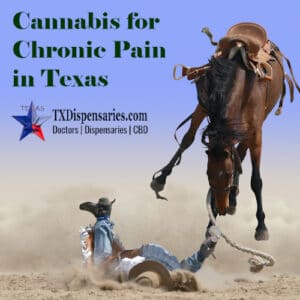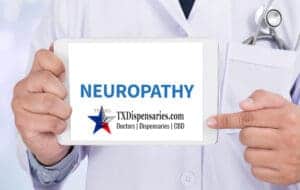
Medical Marijuana for Chronic Traumatic Encephalopathy (CTE)
- Chronic traumatic encephalopathy (CTE) is a qualifying medical condition for medical cannabis in Texas.
- CTE is caused by repeated brain injury and is common among full-contact athletes such as football players, hockey players and boxers.
- Medical marijuana and CBD are being used by athletes for both protection from CTE and treatment.
- In order for patients to be able to purchase products containing THC at Texas medical marijuana dispensaries, they must first be examined by a state-certified medical marijuana doctor.
Treating CTE with medical marijuana in Texas
Under the Texas Compassionate Use Act, passed into law in June 2015, medical marijuana for CTE to be prescribed low-THC cannabis products. Originally, only patients with intractable epilepsy qualified for Texas high CBD medical marijuana. However, chronic traumatic encephalopathy and several other medical conditions were added to the list of qualifying conditions after inception.
Other conditions added at that time include all seizure disorders, autism, multiple sclerosis (MS), spasticity, amyotrophic lateral sclerosis (ALS), terminal cancer, Alzheimer’s, Parkinson’s, and Huntington’s diseases.
Then in June 2021, medical marijuana became available to all cancer patients and anyone suffering from post-traumatic stress disorder (PTSD). Also, the THC cap was raised from 0.5 percent to 1 percent beginning September 1, 2021.
What Is CTE?
Chronic traumatic encephalopathy is a degenerative brain disease caused by repeated head traumas (concussions). The condition is most common among athletes in high contact sports such as football and hockey and boxing.
Repetitive concussions can cause a build-up of tau proteins in the brain similar to those seen in Alzheimer’s disease patients. These proteins are meant to protect damaged neurons. However, repeated injury can provoke clumps of tau proteins that can damage neurons and impair brain function.
What Is CTE?
CTE symptoms are similar to Alzheimer’s disease. CTE is characterized by changes in mood, loss of memory, depression, headaches, agitation and aggression, and impaired thinking. In severe cases, patients may develop atrophy, spasticity, and tics.
Often it takes several years for the symptoms to manifest after the brain is injured. Those symptoms may not manifest until several years after the brain injuries.
According to the medical journal JAM, 99 percent of deceased NFL players with CTE symptoms whose brains were used for scientific research showed signs of CTE.
Why Was CTE Added As A Qualifying Medical Condition In Texas?
- One study showed that compounds in marijuana called cannabinoids act as neuroprotective agents that might counteract the negative effects of a traumatic brain injury in some patients.
- Another research project conducted by the National Institute of Mental Health also confirmed the neuroprotective properties of cannabinoids in brains exposed to toxic levels of neurotransmitters responsible for memory and learning.
- A Canadian study found that cannabinoids reduced depressive and anxious behavior. They also stimulated neuron growth in newborn rats.
- A study out of Brazil reported that cannabinoids produced cell regeneration in mice.
- In a human study done in 2018, researchers found that cannabinoids reduced chronic pain and dizziness associated with concussion in a majority of patients.
How Does Medical Marijuana Help Treat CTE?
The two most common cannabinoids produced in marijuana are tetrahydrocannabinol (THC) and cannabidiol (CBD). These and other minor cannabinoids including CBG and CBN interact with the human endocannabinoid system (ECS). Of these, THC is the only cannabinoid that causes intoxication and only if it is smoke, vaporized, or cooked. (Heat converts non-intoxicating THCA produced in the plant into THC.)
The ECS is responsible for regulating a wide array of bodily functions including mood, memory, and cognition. This is the brain’s signaling system. When an imbalance is detected, the brain releases endocannabinoids into the bloodstream.
One of the functions of endocannabinoids is to regulate the inflammatory response. Head trauma can cause inflammation which can lead to the buildup of proteins indicative of CTE. Endocannabinoids also act as antioxidants and neuroprotectants and can stimulate neural regeneration (growth of brain cells).
The two most common cannabinoids produced in marijuana are tetrahydrocannabinol (THC) and cannabidiol (CBD). These and other minor cannabinoids including CBG and CBN interact with the human endocannabinoid system (ECS). Of these, THC is the only cannabinoid that causes intoxication and only if it is smoke, vaporized, or cooked. (Heat converts non-intoxicating THCA produced in the plant into THC.)
The ECS is responsible for regulating a wide array of bodily functions including mood, memory, and cognition. This is the brain’s signaling system. When an imbalance is detected, the brain releases endocannabinoids into the bloodstream.
One of the functions of endocannabinoids is to regulate the inflammatory response. Head trauma can cause inflammation which can lead to the buildup of proteins indicative of CTE. Endocannabinoids also act as antioxidants and neuroprotectants and can stimulate neural regeneration (growth of brain cells).
The cannabinoids produced in marijuana are technically referred to as phytocannabinoids. And there are also synthetic cannabinoids such as Dronabinol and Marinol that we refer to as exogenous cannabinoids.
The phytocannabinoids produced in cannabis flowers have the ability to mimic the effects of our own natural endocannabinoids to some extent. And supplementing with phytocannabinoids might help to limit the damage caused by brain trauma.
Moreover, cannabinoids are being used successfully to treat many of the individual symptoms that accompany CTE such as agitation, depression, headaches, and memory loss.
Cannabinoids found in medical marijuana may also help to prevent the onset or slow the progression of CTE when used following a traumatic brain injury.
Because cannabinoids are so similar to compounds produced by our own bodies, they are non-toxic and well-tolerated. Cannabinoids are also non-addictive and when used properly produce no long-term side effects.
Unfortunately, Texas medical marijuana laws limit patients to cannabis products that contain very low levels of THC. Only the sale of high-CBD, low-THC oils and lozenges is permitted at Texas dispensaries.
CBD is a non-intoxicating cannabinoid. At high enough doses, THC causes a high. However, THC has been shown to help protect neurons from damage. Even at the one percent limit, the presence of THC might prove beneficial for some patients.
How To Get Medical Marijuana For CTE In Texas
A Texas medical marijuana certification from a qualified doctor allows access to low-THC, high-CBD cannabis oils. Qualifying residents of any age are eligible. However, in order for qualifying patients under the age of 18 to receive medical marijuana for CTE, they must first obtain recommendations from two state-certified medical marijuana physicians.
Texas residents suffering from qualifying conditions other than CTE may also be eligible. Additional qualifying conditions include PTSD, Alzheimer’s disease, Parkinson’s disease, cancer, autism, epilepsy, ALS, MS, and all seizure disorders.
Qualifying patients in the state of Texas may designate a caregiver to procure and administer cannabis products. Qualifying minors may only receive cannabis products from a guardian or parent.
Before receiving their Texas medical marijuana prescription, physician-certified patients must complete their registration by logging on to the Compassionate Use Registry database.

Sign Up for Medical Cannabis in TX
For potential medical marijuana patients we make it easy to connect with a recommending doctor online. You will also receive updates & news relative to medical marijuana in Texas. If you are interested, simply fill out the MMJ patient registration form to get started. Legal Residents Only.

MMJ Patient Registration Form

How to use medical marijuana to treat CTE in texas
The state of Texas only allows the sale and use of cannabis oil, cannabis-infused lozenges, tinctures, lotions, and cannabis inhalers containing no more than 1.0 percent THC and at least 10 percent CBD.
For patients that experience a sudden onset of symptoms, inhalers offer fast effects as the cannabinoids are absorbed into the bloodstream directly from the lungs. For patients whose symptoms are constant, cannabis-infused oils, tinctures, and lozenges might be a better choice. Oils and tinctures can also be added to food and beverages.
CBD-rich hemp flower containing 0.3 percent THC content is now legal and available across the U.S. as is CBD oil. Texans can order CBD online and have it delivered to their doorstep without a Texas medical marijuana card. However, patients suffering from a serious condition such as CTE should ideally be under the supervision of a medical marijuana practitioner prior to beginning cannabis treatment.
Texas medical marijuana dispensaries
In the state of Texas, there are only three licensed companies legally allowed to cultivate, manufacture and sell medical marijuana products — Consortium Texas, Goodblend, and Compassionate Cultivation. These three companies operate several Texas dispensaries. Some locations offer online and phone ordering for home delivery to qualifying patients. Call your nearest dispensary for details.
Sources and additional reading:
- Texas Compassionate Use Registry
- Cannabinoid agonist rescues learning and memory after a traumatic brain injury
- Cannabidiol for CTE Treatment – MedCard
- Endocannabinoids and neuroprotection
- Neuroprotective antioxidants from marijuana
- The anxiolytic effect of cannabidiol on chronically stressed mice depends on hippocampal neurogenesis: involvement of the endocannabinoid system
- Cannabis, concussion, and chronic pain: An ongoing retrospective analysis at Dent Neurologic Institute in Buffalo, NY
- Cannabinoids promote embryonic and adult hippocampus neurogenesis and produce anxiolytic- and antidepressant-like effects
- Cannabis Therapeutics and the Future of Neurology



